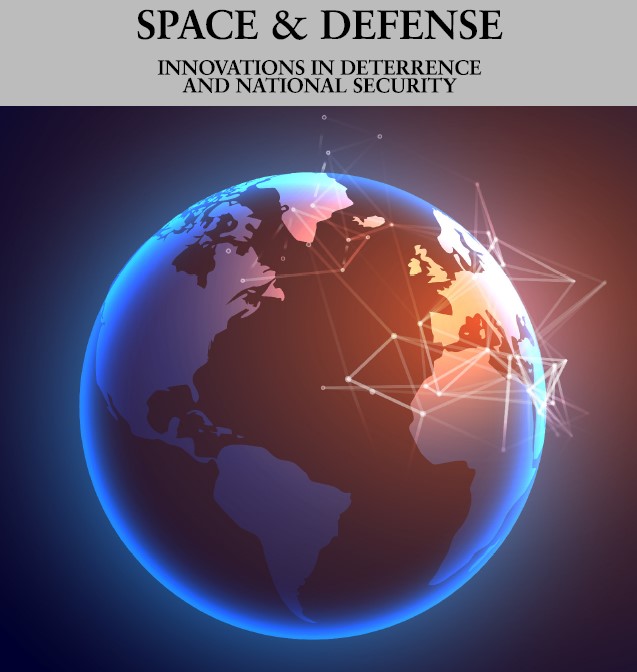Space and Defense

Winter 2021
Editor's Note Vol 12 No. 1
In this issue, we extend our approach to Space & Defense as a challenge within the broad field of inquiry known as political economy. By this we mean that national defense of “spaces” or multiple domains for national security involves more than allocating resources and executing programs for increasing military capability. It also entails thinking through strategic problem sets that include elements of cooperation—international alliances and domestic negotiations—as well as competition among military organizations.
Consistent with our aim to open the journal’s editorial scope and address all relevant frontiers of defense policy, this issue welcomes contributions on space, cyber security, artificial intelligence and nuclear deterrence. General John E. Hyten, then- commander of U.S. Strategic Command, addressed cadets at the U.S. Air Force Academy (USAFA) for the 2019 Eaker Lecture on preparing to meet the 21st century deterrence mission. He has graciously allowed Space & Defense to publish a lightly edited transcript of his remarks to future Air and Space Force officers.
In our first feature article, Roger Wortman of the U.S. Space Force reflects on the mission of defending vulnerable satellites on orbit. He draws inspiration from a popular fictional tale, Defence of Duffer’s Drift, to explain how military science may be supplemented by game play that entertains a type of dream world based on reality but flexible with respect to counterfactuals for adversary plans of attack. Implications for developing USSF strategy, operational art, doctrine, and adaptability in crises ought to hold, regardless of whether or when international powers choose to weaponize space.
Abderrahmane Sokri extends the theme of imperfect defense to the cyber domain. He uses a clever application of the business-based leader- follower equilibrium from economic theory to explore the possibility of a Goldilocks solution for cyber defense. As in the classic Stackelberg competition, first mover’s optimal strategy is not to invest everything he has, for there will be diminishing rate of return on how much he deters his adversary. With relatively few, plausible assumptions on how investment improves resilience of cyber networks for defender, and limits benefits for attacker, Sokri conjures a game- theoretic world that offers insights as to how defender can calibrate just-right spending on cyber defense and (unlike cyber offense) advertise his effort with intent to lock an adversary into predictable equilibrium play.
In this issue, we present two remarkable cadet papers nurtured by USAFA’s Nuclear Weapons and Strategy minor and recognized by external experts on deterrence. Second Lieutenant Marshall Foster (USAFA ’20) reviews the burgeoning literature on how artificial intelligence will affect strategic stability and supplies his own account based on the interaction of strategic cultures. Second Lieutenant Liam Connolly (USAFA ’19) surveys recent pressure on Baltic states within NATO and raises the importance of national resilience—a rather complex correlate of defense spending—for the success of U.S. extended deterrence in Europe.
Finally, as contributing editor, I review The Death of Expertise (Oxford, 2017) by Naval War College professor Tom Nichols. Nichols in the book is mainly concerned about how status decline of experts in American society imperils modern democracy, which depends on elected representatives as generalists, weighing competing advice from professionals or accepting political risk in order to follow the truth presented by expert consensus. Many of Nichols’ examples land in the policy areas of health, education, and economy, but as an international security scholar, he is aware of additional implications from the death of expertise for foreign policy and U.S. strategic competence. Nichols’ challenges, I argue, are important for civilian analysts and military officers, the relevant experts, to keep at the forefront as they prepare the new Space Force, against rapidly evolving threats, under democratic civilian control and subordinate to the authority of elected politicians.
In my case, as is true for all our authors, contributions herein are academic and do not represent official policy or opinion of the U.S. Air Force or the U.S. Space Force.
Damon Coletta, USAFA
January 2021
Whole Issue
Space and Defense – Volume Twelve – Number One – Winter 2021
Space and Defense Journal
